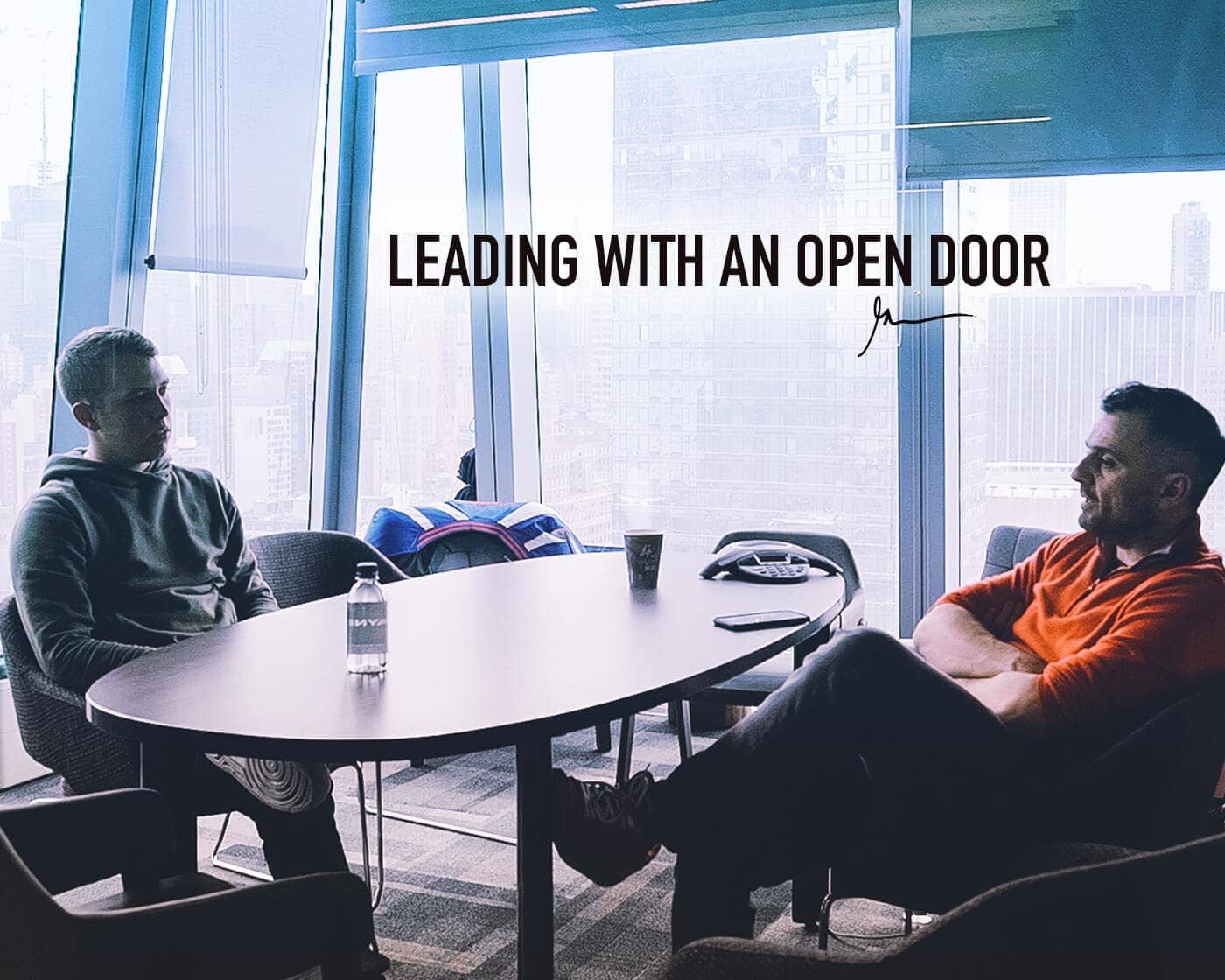I don’t think people understand that, as a CEO, I’m in the business of solving problems. I need to know what’s going on. The reason I lead with an open door is it is imperative to my success. If I don’t hear from every employee or the one’s that have something to say, then I don’t have a pulse on the way my company works. Whether it’s positive or negative, I need to know.
I think a lot of people either think that I’m too busy or that I don’t want to hear from them, and the truth is, it’s literally the complete opposite.
Any leader that’s running a healthy organization focused on the long term wants to be able to know what’s happening in the trenches from their people, so they can address it for two reasons.
One, they want to build respect and admiration from the people that are bringing these issues to them and show them the value of inclusive leadership.
And two, on a much more macro level, they need to make sure the company runs in the best way that it possibly can. So I maintain an open door policy, (one that an unfortunately small percentage of my employees take me up on!) that allows me to do both.
If someone has an idea or a complaint or an issue and wants to speak up, the thought of them not having an outlet to do so is unimaginable to me.. It’s a philosophy that has serviced me extremely well my entire career.
I don’t think one can win in business without having the proper teammates and empowering them to play their role. Ideas can come from anywhere but the fact of the matter is you need an offensive line, you need a receiver, you need a quarterback, you need them all and I think any leader that doesn’t recognize that will ultimately not succeed in the long term. Obviously you can have a company that runs for six months and you sell it but over a 10, 20, 40 year period, there is no other strategy that will actually work.
The great thing about having an open door policy is you get to hear a new perspective. You have insights at scale from the finance team, or comms, or paid media, all contributing to the brand. I don’t care if you’re an intern or the CFO, you’re voice matters.
The reason VaynerMedia has a disproportionately low turnover rate among employees is because I execute on this philosophy and make conversation open and accessible to all.
I have never stressed anything more to my employees than the relationships and I’m very proud of the culture I’ve built.
For me, I’ve never even conceived of a winning organization that didn’t disproportionately rely on its people. And that’s how I thought about my businesses. Now what’s ironic about that and the title that I’m using for this article is that I’m changing my open door policy because I’ve run it for the last three or four years and I recognize that too many people are not taking me up on it, so instead my number one ambition in 2018 is to spend five to ten minutes with every single employee every six months.
It’s mandatory. No exception.
And so, I believe in my open door policy so much that I’m changing my open door policy to a forced meeting policy, which I hope extracts even more insights, even more relationships, even more comfort and rapport and respect with me and everybody in the organization.
And there’s nothing wrong with digital communication either. I just thing digital is the gateway to physical. I know much more about my employees by scrolling through their instagram and their medium blog which is another part of my overall strategy.
Whether it’s a traditional meeting, coffee on the weekend, my 8pm-11pm dinner with three VP’s and an intern that make’s all the difference. You have to break the pattern and do things others aren’t willing to do. You are building relationships, which builds trust, which improves communication which equals SPEED.
So whether it’s Email, or direct messaging or texting, it all works. I prefer an employee reach out to me on email or text or direct message or via Smoke Signal to set something up, which will then lead to a time for us to be together as well.
I probably get 90% of the energy and the vibe even from digital because I’m generally intuitive and I’ve studied the markey, but the extra 10% is seeing the expression in their eyes.
It’s the 1% or 2% of way you react that I say, something you don’t want to hear, if it’s overly devastating to you that’s an insight to me on who you are or maybe leads to a followup question about, hey, are you telling me everything about your family situation? Those are things I can get on a text, where in person I think those things matter.
I think communication and transparency leads to trust and I think trust leads to speed.
Every organization would be much faster if everybody trusted everybody because then you wouldn’t be spending enormous amounts of mind energy in debating the relationships, which takes up 80% of the day with somebody worrying about somebody undermining them, not coming through for them. There’s so much to comprehend that it’s crippling and most organizations are ravaged by some percentage of politics and even with all my ambition and aspiration to build something that is strong in that arena, we have our shortcomings and vulnerabilities. Its human nature.
So many people are, by nature, cynical. They’re gonna complain about something.
And more importantly, an ungodly amount of people, once they hit a real level of success in their careers, they turn to defense and try to suppress others around them to not take their spot, which leads to very troubling issues.
I don’t want that to happen. I want to be as transparent and open as possible so that I can avoid those shortcomings. It’s how I run my organization, and I think it’s going pretty well.











